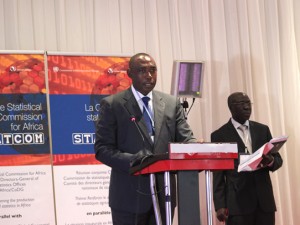African countries require $3 trillion in upholding NDCs to fight climate change – ECA

African countries will require some $3 trillion in conditional and unconditional financing to uphold their nationally determined commitments (NDCs) if the continent wants to reduce the effects of climate change according to the Economic Commission for Africa (ECA).
A press release from the ECA, copied to ghanabusinessnews.com, says experts have therefore urged leaders on the continent to mainstream and integrate climate change measures into national policies, plans and strategies to avoid natural disasters such as the Cyclone Idai which affected more than 2.6 million people and caused more than 700 deaths last month in some Southern African countries.
In light of the fatalities and destruction, African nations have also been tasked to prioritize the uptake and use of climate information as early warning measures to climate proof infrastructure and other investments as well as adopt contingency measures that will protect human life and shield property from climate induced disasters.
Speaking at a side event at the on-going Fifth Africa Regional Forum for Sustainable Development (ARFSD) in Marrakech, Morocco, Oliver Chinganya, the Director of the African Statistics Centre of the ECA indicated that climate change can seriously impede Africa’s quest to achieve all the 17 sustainable development goals that address global challenges, including poverty, inequality, climate, environmental degradation, prosperity, and peace and justice. .
“While extreme events are natural, climate change is worsening their occurrence and impacts, as demonstrated by the severe human and economic losses that occurred in Malawi, Mozambique and Zimbabwe in March 2019 from the devastation caused by Tropical Cyclone Idai,” Chinganya said.
He further went on to say that climate change aggravates existing vulnerabilities and structural inequalities. Without urgent and ambitious global action on climate change, well beyond current pledges under the Paris Agreement, development agenda for Africa is at serious risk of failure.
The release noted that even though Africa has contributed the least to climate change, it is significant to note that as of March 2019 all African States had signed on the Paris Agreement which commits all countries to limit the increase in the global average temperature this century to well below 2 degrees Celsius above pre-industrial levels and to pursue efforts to limit the temperatures increase to 1.5 degrees above pre-industrial levels.
Mr Chinganya further explained that, climate change and development are inseparable. Climate change is the consequence of current global production and consumption patterns and the resulting increase in greenhouse gas emissions.
According to the release, as of March 2019, some 48 African nations have ratified the global pact and submitted their nationally determined contributions.
The international community was also called upon to fulfil its commitments pledged during the 15th Conference of Parties to the UN Framework Convention on Climate Change held in Copenhagen, promising annual climate financing to a tune of $100 billion.
The Marrakech forum went on to note that the Paris Agreement offers Africa an opportunity to adopt low-carbon development pathways and capitalize on its abundant renewable energy resources to power socio-economic transformation.
By: Asabea Akonor
